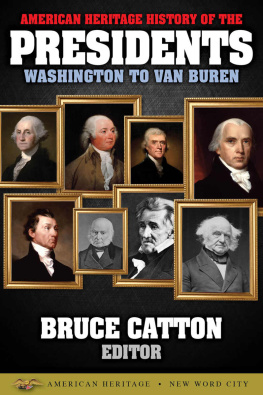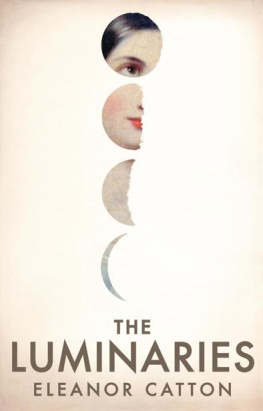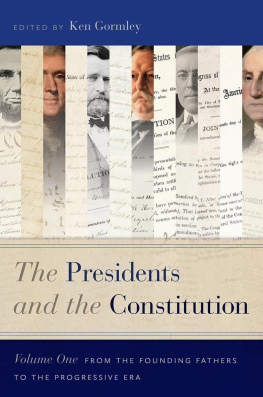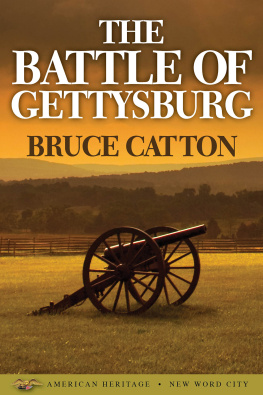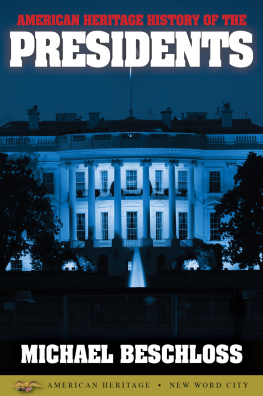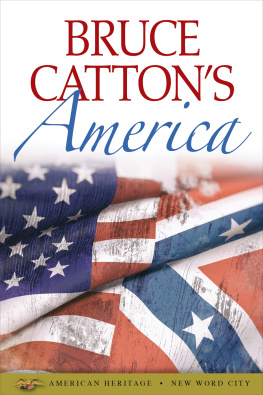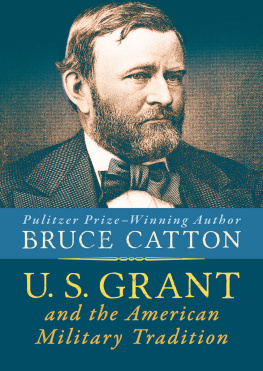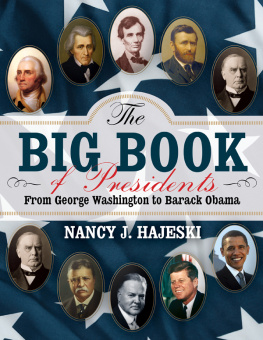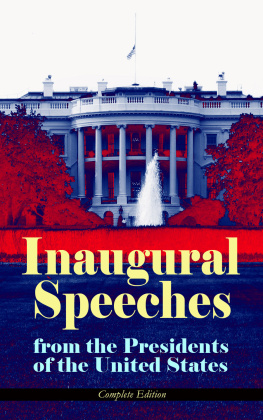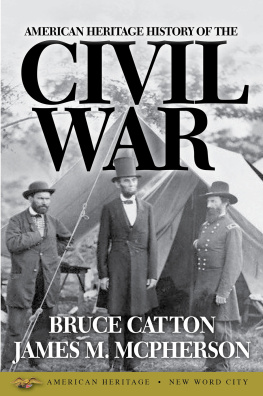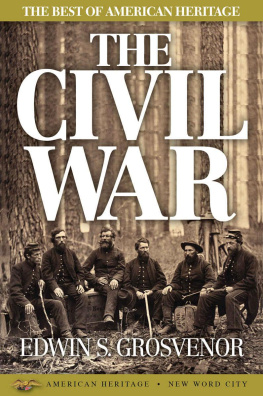Catton - American Heritage History of the Presidents: Washington to Van Buren
Here you can read online Catton - American Heritage History of the Presidents: Washington to Van Buren full text of the book (entire story) in english for free. Download pdf and epub, get meaning, cover and reviews about this ebook. year: 2016, publisher: New Word City, Inc., genre: Science. Description of the work, (preface) as well as reviews are available. Best literature library LitArk.com created for fans of good reading and offers a wide selection of genres:
Romance novel
Science fiction
Adventure
Detective
Science
History
Home and family
Prose
Art
Politics
Computer
Non-fiction
Religion
Business
Children
Humor
Choose a favorite category and find really read worthwhile books. Enjoy immersion in the world of imagination, feel the emotions of the characters or learn something new for yourself, make an fascinating discovery.
American Heritage History of the Presidents: Washington to Van Buren: summary, description and annotation
We offer to read an annotation, description, summary or preface (depends on what the author of the book "American Heritage History of the Presidents: Washington to Van Buren" wrote himself). If you haven't found the necessary information about the book — write in the comments, we will try to find it.
Catton: author's other books
Who wrote American Heritage History of the Presidents: Washington to Van Buren? Find out the surname, the name of the author of the book and a list of all author's works by series.
American Heritage History of the Presidents: Washington to Van Buren — read online for free the complete book (whole text) full work
Below is the text of the book, divided by pages. System saving the place of the last page read, allows you to conveniently read the book "American Heritage History of the Presidents: Washington to Van Buren" online for free, without having to search again every time where you left off. Put a bookmark, and you can go to the page where you finished reading at any time.
Font size:
Interval:
Bookmark:
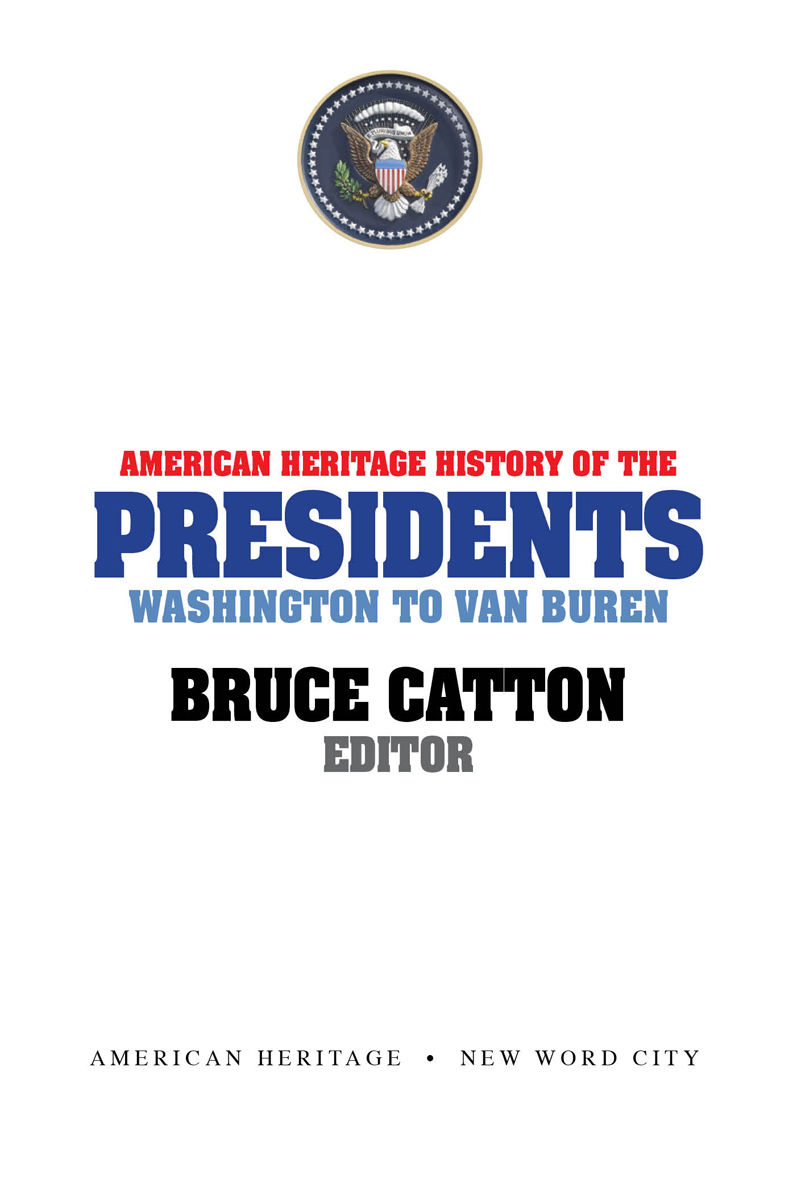
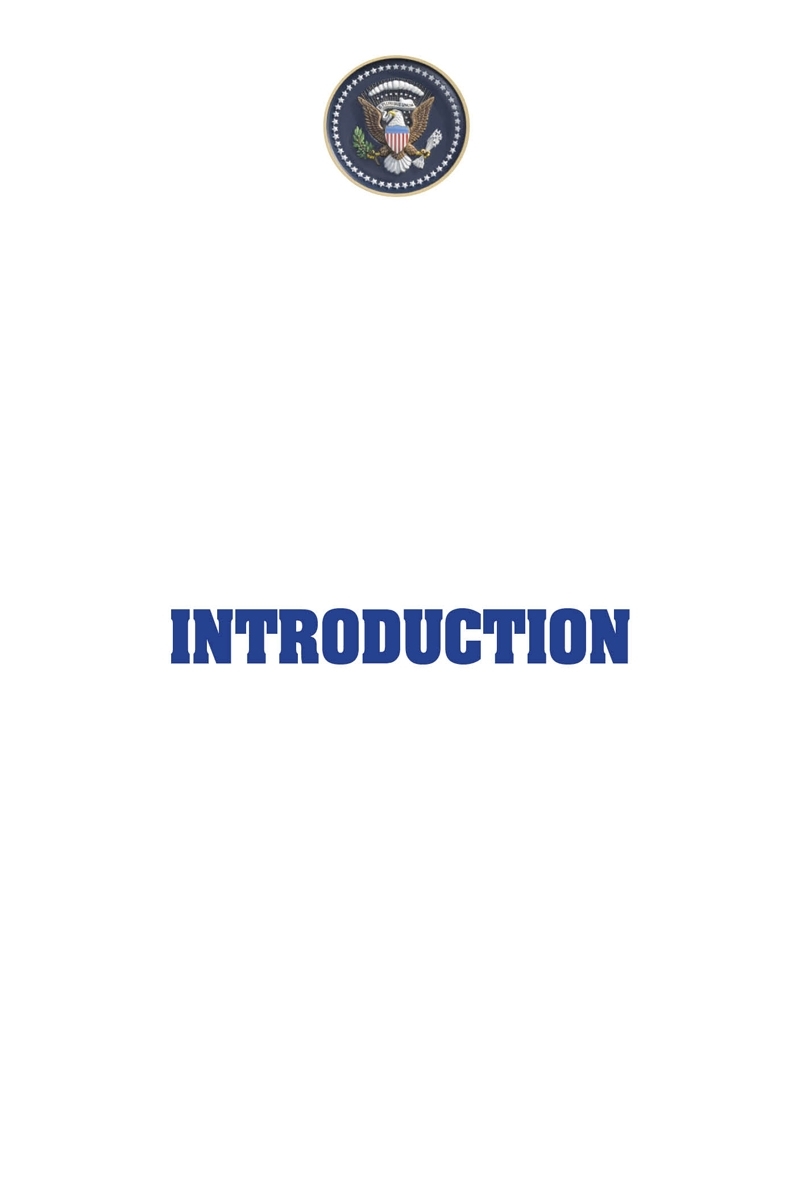
The highest and most significant office in the United States is, of course, the presidency. It was created by the Founding Fathers, and since their day, it has been developed, strengthened, and marvelously expanded until it is much greater than it was originally designed to be. It is the principal instrument through which the people of the United States try to control their destiny in a complicated and uncertain world. Perhaps the best way to examine the office is to examine the lives and personalities of the men who have held it, because the presidency today is in many ways the sum of large and small contributions made by the different presidents.
These men make a mixed grill. Sometimes it seems that they have nothing much in common except the fact that, for one reason or another, the voters elevated them to high office. Some of them were surpassingly strong men, and some of them were woefully weak; some of them ideally fitted the times they served, a few were obviously miscast, and still others were simply average men doing the best they could in a most demanding job. Each man was in his own day the one to whom the country looked for leadership, and by and large, the leadership has usually been forthcoming. If the story of the presidents proves nothing else, it testifies to the enormous stability of the office itself and of the nation that devised it.
The Country does not always elect its most famous and talented men to the presidency. The list of prominent Americans who were highly qualified for the job but never got it is long. It can be balanced by a list of presidents who would hardly be remembered today, except by the historians of political life, if they had not entered the White House. (Who would recall Millard Fillmore, John Tyler, Franklin Pierce, Chester Alan Arthur, or Benjamin Harrison?) There are, on the list, some very good men who were overwhelmed by the immense problems that the presidency brought them; James Buchanan. Andrew Johnson, and Ulysses S. Grant, for instance, were dedicated men who simply faced more than they knew how to handle. Often enough, a man who seems poorly qualified for the office grows mightily once he gets in it - Andrew Jackson, for example, and Abraham Lincoln, to name only two. A time of crisis does not always bring forth a president who can cope with it; a strong president or two in the decade just before the Civil War might have saved the country an infinity of suffering, and the same is true of the early 1920s but surprisingly often we get a big man just when we need one.
Indeed, the most interesting thing about the long roll call of men who have lived in the White House is that the average is so surprisingly high. One of our favorite jokes has to do with the offhand way in which we choose our vice presidents. Logically, these men ought to be dismal failures when tragedy puts them into the top job. Actually, they are not. Some were ineffective presidents to be sure, but some were genuinely first-rate.
One thing that stands out is that the office of the presidency has always been growing - partly because the times themselves have demanded it, but also because certain exceptional men have stretched the powers of the office in order to do things that needed to be done for the nation. Jefferson, Jackson, Lincoln, the two Roosevelts, Truman: Each of them made the office bigger by boldly exerting its implied but unstated powers. Bear in mind, too, that none of the men who seized and exercised the undefined authority that becomes visible to the man in the White House was guilty of anything like Caesarism. Every man who ever lived in the White House understood that he was acting for something much bigger than himself. When he reached out for additional authority, he was getting it for the presidency and not for himself.
Here they are, then, the men who have been presidents of the United States. They make a pretty good group, all in all, and they have not failed us. Only a nation with sound instincts for the survival of freedom, democracy, and the national well-being could have chosen a group that stands the backward glance as well as this one does.
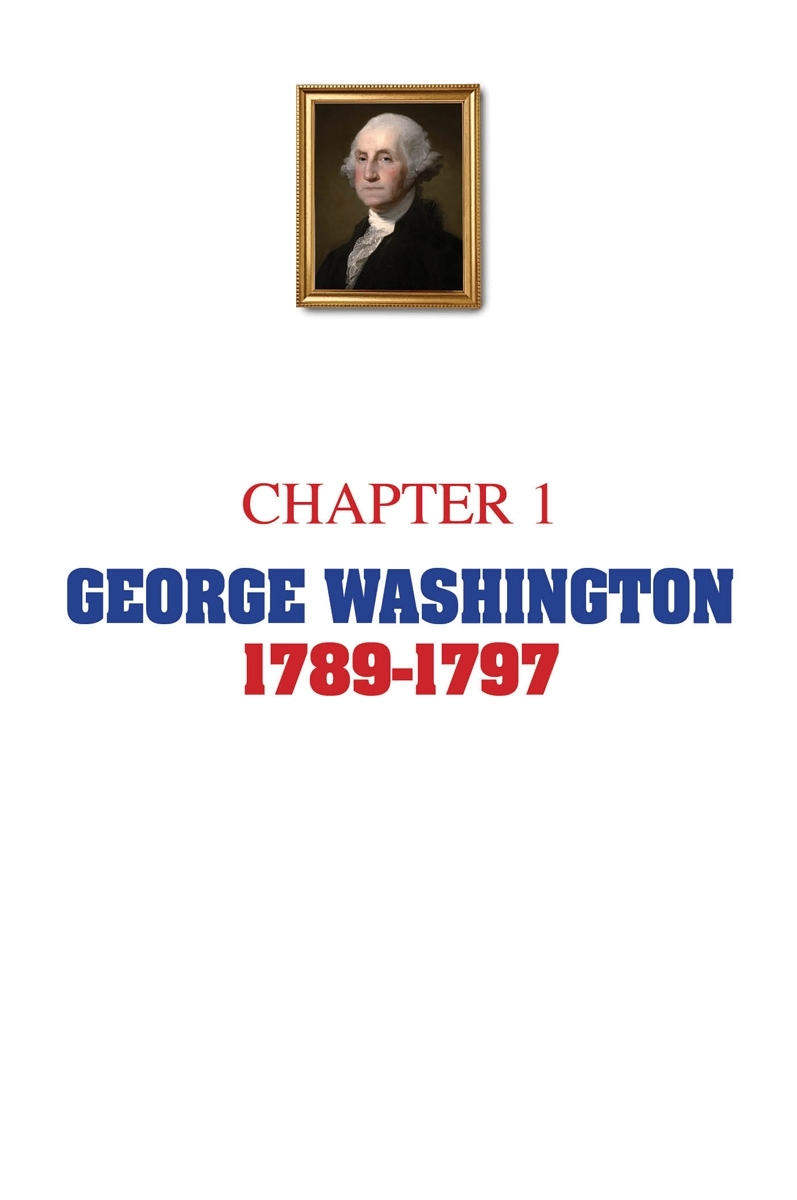
George Washington, said an anti-Federalist newspaper, has the ostentation of an eastern bashaw. The first president, a contemporary senator insisted, has become in the hands of Hamilton, the dishclout of every dirty speculation, as his name goes to wipe away blame and silence all murmuring. On the eve of Washingtons retirement, Benjamin Franklins grandson, Benjamin Bache, crowed: Every heart... ought to beat high in exultation, that the name of Washington ceases from this day to give a currency to political iniquity and to legalize corruption.
Other opponents accused him of stealing from the Treasury, of toadying to the British, of being inept as a general. An embittered Tom Paine, imprisoned by the French for revolutionary agitation, condemned Washingtons neutrality in his case: As to you, sir, treacherous in private friendship... and a hypocrite in public life, the world will be puzzled to decide... whether you have abandoned good principles, or whether you ever had any.
To most of his contemporaries, however, George Washington - commander of the tattered colonial army, chairman of the Constitutional Convention, first President of the United States - was indisputably first in war, first in peace, and first in the hearts of his countrymen. Despite their political differences, Thomas Jefferson spoke for the nation in urging Washington to seek a second term; The confidence of the whole Union is centered in you... he told his chief. North and South will hang together if they have you to hang on. After Washingtons death, Jefferson wrote: Never did nature and fortune combine more perfectly to make a man great, and to place him in... an everlasting remembrance.
But America would not be satisfied with the realities - glorious though they were - of Washingtons life. It wanted a flawless hero. Washington was destined to a stature in death, writes historian Daniel Boorstin, which he had never attained in life.... A deification which in European history might have required centuries was accomplished here in decades.
Thus, despite the political slander and bile that marred Washingtons two administrations, the first president soon came to be regarded as a demigod. Mason Locke Weems, an Episcopal clergyman and itinerant bookseller, reaped enormous profits from his largely apocryphal biography of Washington, first published in 1800. Weems attributed all virtues to the first president, from extraordinary honesty, bravery, and wisdom to exceptional physical dexterity: In the fifth edition of the biography, printed in 1806, the legend of Washington and the cherry tree first appeared in type. Despite Weemss crass assurance to his publisher that the latter had a great deal of money lying in the bones of old George, the myths he spawned engaged and still engage Americans.
Because of this literature of hero worship, because of Washingtons own reticence, and because of his familys penchant for burning, editing, or giving away his private papers and letters, the personality of George Washington has remained obscure, distant, never quite credible. Perhaps historian W. E. Woodward was partially correct when he wrote that people think they do not understand Washington because they can find in him nothing that is not within themselves. It was just in that quality that his greatness lay. He was the American common denominator, the average man deified and raised to the nth power.
Font size:
Interval:
Bookmark:
Similar books «American Heritage History of the Presidents: Washington to Van Buren»
Look at similar books to American Heritage History of the Presidents: Washington to Van Buren. We have selected literature similar in name and meaning in the hope of providing readers with more options to find new, interesting, not yet read works.
Discussion, reviews of the book American Heritage History of the Presidents: Washington to Van Buren and just readers' own opinions. Leave your comments, write what you think about the work, its meaning or the main characters. Specify what exactly you liked and what you didn't like, and why you think so.

